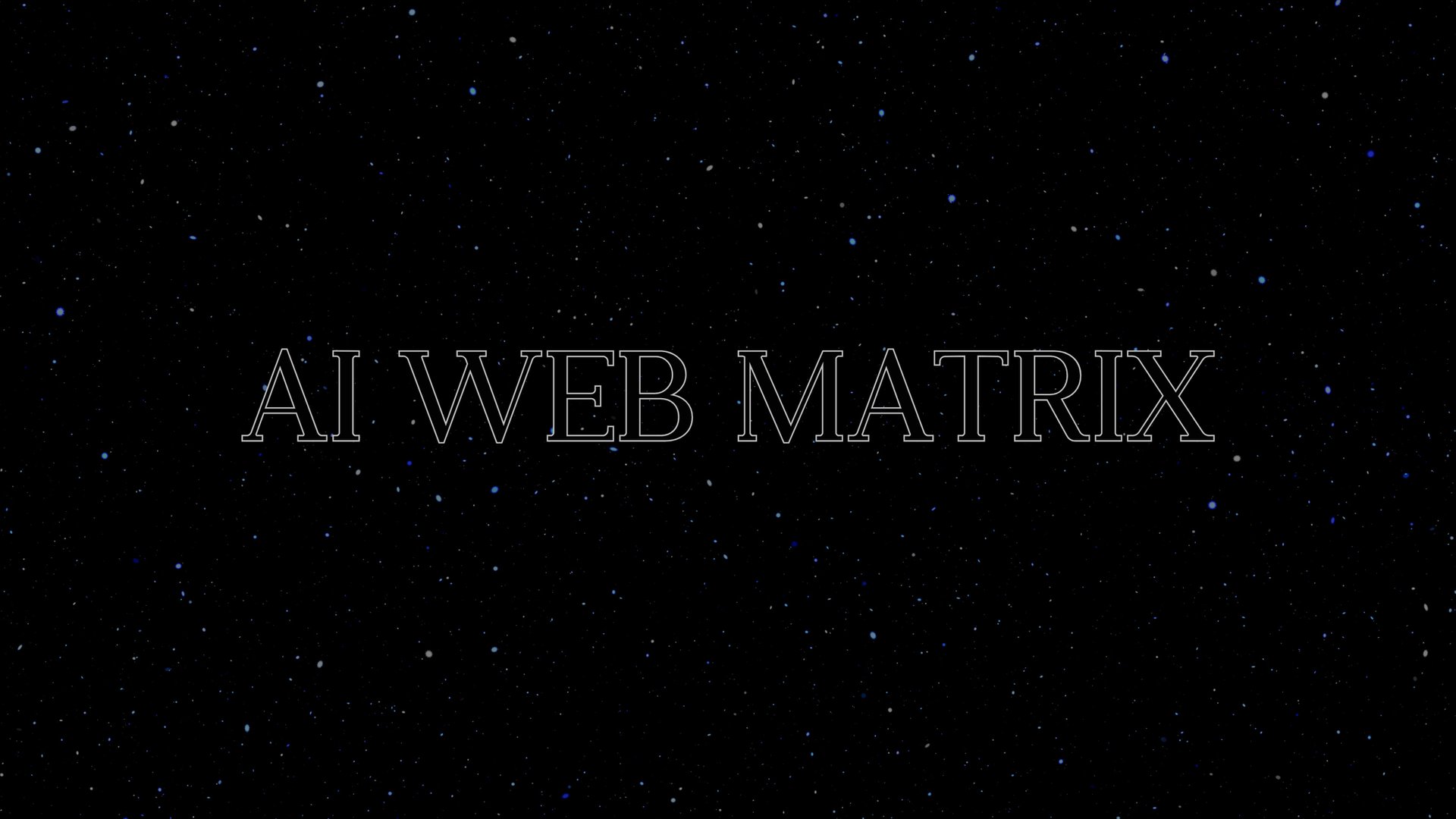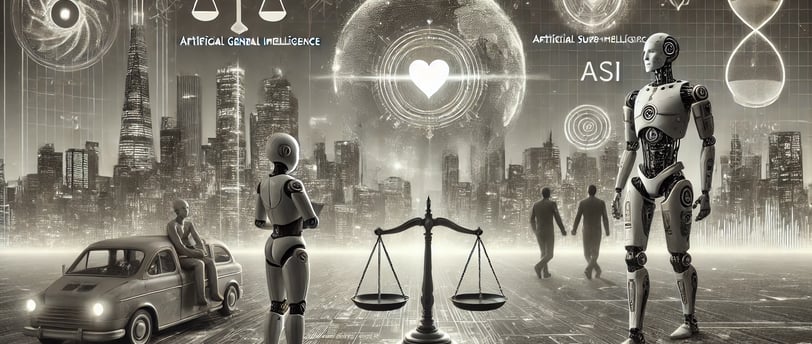
AI Advancements Shaping Job Market and Society
Discover how AI advancements are impacting the job market and society, including the future of work in affected industries, ethical considerations, and the potential for universal high income. Expl...
NEWS


The Future of Work: AI's Impact on Employment and Society
The rapid advancement of artificial intelligence (AI) has sparked both excitement and concern across various sectors. From healthcare to finance, AI's potential to revolutionize industries is undeniable. However, the question of how AI will impact employment remains a pressing issue. Elon Musk, a prominent figure in the tech industry, has shared his views on the future of work in an AI-driven world. This article delves into Musk's vision, the role of AI in job automation, and the broader implications for society.
Elon Musk's Vision of an AI-Driven Future
During his speech at VivaTech 2024, Elon Musk outlined a future where artificial intelligence takes over most jobs, making employment optional. He suggested that in this new world, people could choose to work as a hobby while AI and robots handle the production of goods and services. Musk also introduced the concept of a "universal high income" to ensure financial stability in a job-free society. Unlike universal basic income (UBI), which provides a set amount of money to everyone, universal high income would be tailored to meet the needs of a world abundant in AI-driven productivity.
The Role of AI in Job Automation
AI's integration into the workplace has been gradual but transformative. Industries such as manufacturing and logistics have seen significant changes, with AI taking over repetitive and labor-intensive tasks. Despite concerns, studies from MIT's Computer Science and Artificial Intelligence Lab indicate that the adoption of AI has been slower than anticipated. Jobs requiring high emotional intelligence and human interaction, like those in mental health and creative fields, remain less susceptible to automation. As AI continues to evolve, its role in job automation will likely expand, prompting a need for adaptability and continuous learning among the workforce.
Industries Most Affected by AI
AI's impact varies across different industries. Manufacturing and logistics have experienced significant automation, with robots and AI systems performing tasks that were previously manual. The financial sector is also seeing a rise in AI applications, from algorithmic trading to customer service chatbots. Healthcare is another area where AI is making strides, aiding in diagnostics and personalized treatment plans. However, jobs that require creativity, emotional intelligence, and complex human interactions, such as those in the arts, mental health, and education, are less likely to be fully automated in the near future.
Universal High Income vs. Universal Basic Income
The concept of universal high income, as proposed by Elon Musk, differs from universal basic income (UBI) in several ways. UBI involves providing a fixed amount of money to every citizen, regardless of their employment status. Universal high income, on the other hand, would be a more tailored approach, ensuring that individuals have enough resources in an AI-driven economy where traditional jobs may be scarce. This approach aims to maintain economic stability and address the disparities that might arise from widespread automation. The implementation of either system would require careful consideration of economic impacts and societal needs.
Ethical Considerations in AI Development
As AI technology advances, ethical considerations become increasingly important. Issues such as bias in AI algorithms, data privacy, and the potential for job displacement need to be addressed proactively. Ensuring that AI systems are developed and used responsibly involves creating robust regulatory frameworks and industry standards. Companies and governments must work together to establish guidelines that protect individual rights and promote fairness. Transparency in AI decision-making processes and the inclusion of diverse perspectives in AI development are crucial for building trust and mitigating risks.
Psychological and Social Impact of a Job-Free Future
A future where jobs are optional raises questions about psychological and social well-being. Employment often provides a sense of purpose, routine, and social interaction, all of which are essential for mental health. The absence of traditional work could lead to feelings of aimlessness and social isolation. To counteract these potential issues, communities and policymakers must find ways to create meaningful engagement opportunities, whether through volunteer work, hobbies, or new forms of social contribution. Understanding and addressing these psychological impacts will be crucial in a job-free future.
The Future of Education and Skill Development
As AI continues to evolve, the educational system must adapt to prepare individuals for a changing job market. Emphasizing skills that AI cannot easily replicate, such as critical thinking, creativity, and emotional intelligence, will be essential. Educational reforms should focus on promoting lifelong learning and adaptability, ensuring that the workforce remains resilient in the face of technological advancements. Vocational training and continuous professional development programs will also play a critical role in helping individuals transition to new roles as the job landscape changes.
The Economic Landscape in an AI-Dominated World
The widespread adoption of AI will significantly alter the economic landscape. On one hand, AI has the potential to drive economic growth by increasing efficiency and productivity. On the other hand, it could exacerbate economic inequality if the benefits of AI are not distributed equitably. Policymakers must navigate these challenges by implementing measures that promote inclusive growth and ensure that the economic advantages of AI are shared broadly. This may involve rethinking taxation, social safety nets, and investment in public goods to support a balanced and fair economy.
Case Studies of AI Implementation
Various industries have successfully integrated AI into their operations, providing valuable insights into best practices and potential pitfalls. In the automotive industry, companies like Tesla have revolutionized production lines with AI-powered robots and automated systems, significantly reducing costs and increasing efficiency. The healthcare sector has also seen impressive AI applications, such as IBM's Watson, which aids in diagnosing and recommending treatments for complex medical conditions. These case studies highlight the transformative potential of AI while also underscoring the importance of careful planning and implementation.
The Role of Governments and Policymakers
Governments and policymakers play a crucial role in managing the transition to an AI-driven economy. They must establish regulations that ensure the ethical development and use of AI, protect workers' rights, and promote fair economic practices. Incentives for businesses to adopt AI responsibly, such as tax breaks and grants, can encourage innovation while safeguarding societal interests. Additionally, international collaboration on AI regulation is essential to address global challenges and ensure that AI benefits are distributed equitably across different regions.
Public Perception and Acceptance of AI
Public perception of AI significantly influences its adoption and integration into society. Surveys and studies indicate that while many people recognize the benefits of AI, there are also concerns about privacy, job displacement, and ethical implications. Media portrayal of AI, ranging from utopian visions to dystopian fears, plays a critical role in shaping public opinion. Enhancing AI literacy and promoting transparent communication about AI's capabilities and limitations can help build public trust and acceptance, facilitating a smoother transition to an AI-enhanced future.
The Role of AI in Enhancing Human Capabilities
AI has the potential to significantly enhance human capabilities by acting as an augmentation tool. In various fields, from medicine to engineering, AI can assist professionals by providing data-driven insights, automating routine tasks, and enhancing decision-making processes. For example, AI-powered diagnostic tools can help doctors identify diseases more accurately and quickly, while AI-driven design software can assist engineers in creating more efficient structures. This symbiotic relationship between humans and AI can lead to greater productivity and innovation, highlighting the importance of collaborative approaches in leveraging AI technology.
AI and the Future of Creativity
While AI is often associated with automation and efficiency, its role in creative industries is equally transformative. AI algorithms can generate music, art, and literature, opening up new avenues for creative expression. For instance, AI-generated artworks have gained recognition in prestigious galleries, and AI-composed music is being used in various media productions. However, the integration of AI in creative processes raises questions about authorship, originality, and the value of human creativity. As AI becomes more prevalent in creative fields, it will be essential to address these ethical and philosophical considerations.
Conclusion
The advent of AI presents both opportunities and challenges for the future of work and society. Elon Musk's vision of a job-free world, supported by universal high income, offers a glimpse into a potential future where AI handles most production tasks. However, the transition to such a future requires careful consideration of ethical, economic, and social implications. By promoting responsible AI development, investing in education and skill development, and fostering public trust, society can navigate the complexities of AI integration and harness its potential for the greater good.
Related Links:
FAQs
1. What is Elon Musk's perspective on AI and job automation?
Elon Musk envisions a future where AI takes over most jobs, making traditional employment optional. He suggests that people could work as a hobby while AI and robots handle the production of goods and services, supported by a concept of universal high income.
2. How will AI impact different industries?
AI will affect industries in various ways. Manufacturing and logistics will see significant automation, while the financial sector will benefit from AI applications like algorithmic trading and chatbots. Creative and human-centric jobs in fields like mental health and education are less likely to be fully automated.
3. What is the difference between universal high income and universal basic income?
Universal basic income (UBI) provides a fixed amount of money to every citizen, regardless of their employment status. Universal high income, proposed by Elon Musk, would be a more tailored approach, ensuring individuals have enough resources in an AI-driven economy where traditional jobs may be scarce.
4. What are the ethical considerations in AI development?
Ethical considerations in AI development include addressing bias in AI algorithms, ensuring data privacy, and managing the potential for job displacement. It involves creating robust regulatory frameworks and industry standards to promote fairness and transparency in AI use.
5. How can individuals prepare for an AI-driven future?
Individuals can prepare for an AI-driven future by emphasizing skills that AI cannot easily replicate, such as critical thinking, creativity, and emotional intelligence. Engaging in lifelong learning, adaptability, and participating in vocational training and professional development programs will be essential.
